Sarah Hurst
Up here in Alaska, we’re used to earthquakes. FIDE is not, apparently. The prospect of a democratic challenge to His Excellency Kirsan Ilyumzhinov’s reign at the Bled Olympiad proved too much for the organisation to withstand, and the election was cancelled. The tiny Russian republic of Kalmykia was more robust: it did hold a presidential election, which Ilyumzhinov won – but not as easily as he might have hoped.
And why am I following this from my cosy igloo in Anchorage? In 1998, I campaigned for a boycott of the Elista Olympiad after newspaper editor Larisa Yudina, who had been investigating Ilyumzhinov’s dirty dealings, was stabbed to death and dumped in a pond, in the Kalmyk capital, Elista. That was just a month after my visit to Elista, where I had interviewed Ilyumzhinov and visited the playing hall and luxury cottages on the steppe that were hastily being constructed as a “City Chess” for the Olympiad participants.
The reaction to my campaign from professional chess players was overwhelmingly negative. Only a few individuals, including Australian GM Ian Rogers, and some Icelandic and Danish players, expressed serious concern. Those people agreed that it would be wrong to go to the Olympiad when Ilyumzhinov was clearly implicated in the murder of Yudina (two of his aides were convicted of the crime). But not one chess federation in the world implemented a boycott of its men’s or women’s teams.
British players, in particular, were furious at the idea that an upstart journalist should suggest they risk their “livelihoods” by boycotting the Olympiad. They told me that human rights were not relevant to chess, players couldn’t pick and choose the countries they travelled to. I argued that the Kalmyk situation was different, Ilyumzhinov, a suspected murderer and corrupt politician, was president of the world chess governing body and chess players had a duty to rid themselves of him.
The England men’s team thought they had their best shot ever at winning gold at an Olympiad, but in Elista the women and the vodka proved too distracting and their chess performance was limp. There was no money to be won at the Olympiad, but the players didn’t want to get into Ilyumzhinov’s bad books when he was so generously showering millions of dollars – of unknown origin – on knockout World Championship contenders.
By then I’d been a prolific chess journalist for four years and was ready for a change (and a steady income). In 1999 I went to Azerbaijan to work for BBC Monitoring, and followed that with a year in Beijing editing an entertainment magazine for expatriates. I moved to Alaska in June 2001 to live with my internet boyfriend, his four kids and his husky dog, and I now work at the University of Alaska Anchorage.
I wanted to find a publisher for a book of my collected chess articles. Batsford, who published my previous book, Chess on the Web, rejected the idea. Their marketing team thought “those kinds of articles” could easily be found on the internet, so there was no need for a book. Fortunately, Kingpin editor Jon Manley suggested trying Hanon Russell in Connecticut, a specialist chess publisher and founder of the ChessCafe website. Russell enthusiastically offered me a contract. The book was to be called Curse of Kirsan: Adventures in the Chess Underworld.
It took from March to September 2002 for me to write up the articles with editing, corrections, and a narrative. The chapter on Ilyumzhinov and the Yudina murder was updated with a summary of the latest news reports from Russian and foreign sources from 1998 to 2002. Somewhat inconveniently, the presidential election in Kalmykia was scheduled for October 2002 and the FIDE election for November, the time when the book would be at the proofreading stage, which meant it would be impossible to include the results. I could hazard a wild guess, though…
Previously Ilyumzhinov had run unopposed in Kalmyk elections – in breach of the Russian Constitution – and one of his unfulfilled promises to voters was that Argentinian star Maradona would play on the local football team. This time was different. Certain high-ranking Kremlin officials were getting tired of Ilyumzhinov’s antics and decided to scrutinise the election more closely than usual. Russia’s Central Election Commission Chairman Alexander Veshnyakov flew to Kalmykia to personally supervise the election.
Kirsan Ilyumzhinov (photo © Mark Huba)
Ilyumzhinov faced several serious rivals for the Kalmyk presidency, 11 opponents altogether. The strongest was banker Baatr Shondzhiev, whose running mate was Gennady Yudin, husband of Larisa Yudina. He took over editing her newspaper, Sovietskaya Kalmykia Segodnya, after she was murdered. Opposition candidates had some problems getting their message to the voters. According to Russian news agency ITAR-TASS, nine days before the election Veshnyakov said that “abuse of office is apparently going on”, and advised Ilyumzhinov to take a holiday for the duration of the election campaign.
Russian television showed hired people going around Elista scraping off campaign posters for Ilyumzhinov’s rivals, while an abundance of photos could be seen around the city of Ilyumzhinov with the Russian patriarch, the pope, the Dalai Lama and President Putin. “The regional mass media are obviously lauding the incumbent president and slandering all other candidates,” Veshnyakov said.
The plane bringing well-known democratic politician Boris Nemtsov to Elista was not allowed to land, so he landed in Volgograd and took a four-hour bus ride to the Kalmyk capital to campaign for his party’s candidate. Elista airport officials said poor weather was to blame for Nemtsov’s plane not being allowed to land, but Russia’s TV-6 reported that other planes were taking off and landing from the city at the time. A Russian newspaper reported that Nemtsov took locals by surprise by showing up unexpectedly at a meeting being held in support of Ilyumzhinov. Instead of ejecting Nemtsov, people asked for his autograph.
In the first round of the election, on October 20, Ilyumzhinov received 47.6 percent, just short of the 50 percent needed for a win. Shondzhiev came second with 13.6 percent, followed by Nikolai Ochirov, the director of an oil company, with 12.7 percent. Slightly less than 69 percent of eligible voters participated. “It is impossible to say the elections in Kalmykia were undemocratic, Neanderthal,” Veshnyakov said. The electorate “had a real opportunity to choose.” However, the second round was scheduled for the following weekend, the earliest possible date, which guaranteed a win for Ilyumzhinov, according to the Russian media. He duly did win on October 27 with 57 percent of the vote to Shondzhiev’s 39 percent.
After Ilyumzhinov’s victory, political analyst Alexander Nudelman wrote an article called “Who is pulling the strings in Kalmykia?” for Radio Free Europe/Radio Liberty. He explained that Ilyumzhinov has ties with President Putin’s chief of staff, Alexander Voloshin, while Shondzhiev is supported by the “Petersburg clan” in the Kremlin, led by a deputy chief of staff, Viktor Ivanov.
The election results “demonstrate that a growing political opposition is emerging in Kalmykia, most of whose members are former officials fired by Ilyumzhinov,” Nudelman wrote.
“Many observers interpreted Shondzhiev’s 39 percent showing as a sort of ‘protest vote’ against Ilyumzhinov’s economic policies on the part of an impoverished and exhausted populace. Ivanov and his Petersburg-clan colleagues could take advantage of this combination of bolstered political opposition and growing popular discontent in future efforts to force Ilyumzhinov to compromise, or, even, in renewed efforts to remove him. Likely, the clan agreed to Ilyumzhinov’s re-election in exchange for some important and still unknown concessions. Analysts will certainly be watching the republic’s oil sector, currently strictly controlled by Ilyumzhinov and his allies, very closely.”
Those who argue that Ilyumzhinov’s activities in Kalmykia are irrelevant to FIDE are sorely mistaken. Ilyumzhinov’s wealth comes from Russian federal funding to Kalmykia, from “voluntary” contributions by businesses registered in the republic (which is a special “off-shore” zone), from illegal oil processing, and from caviar and drugs smuggling. If he loses his power base, lavish FIDE World Championships will disappear up quicker than you can reset your digital game timer. Are chess players concerned about this? Well, there has been lengthy discussion of the problems within FIDE, but nobody was bothered enough to prevent Ilyumzhinov from awarding himself another term as FIDE president.
Last August, FIDE official Ignatius Leong from Singapore announced that he would run against Ilyumzhinov in the election. Norway’s Morten Sand would be on Leong’s ticket as the candidate for vice-president. Leong’s website stated boldly:
“Nobody gets rich in chess administration (unless you are crooked), and his [Leong’s] source of income is open for everybody to see: Mr. Leong runs a chess school/training center with several hundred students…Mr. Leong says: ‘My keyword is REFORM, my slogan is REFORM for a BETTER FIDE… If the electorate feels that the… money of Mr. Ilyumzhinov is the greatest benefit for FIDE, then FIDE will have to wait till another billionaire comes by.’ You see, FIDE cannot continue relying on President Kirsan to put in more and more money. This source has already shown signs of drying up, and when it does, sooner or later, it will mean complete collapse for world chess.”
I wrote to Leong and Sand, expressing my admiration for their decision to oppose Ilyumzhinov, and provided Leong with all the material I had accumulated detailing Ilyumzhinov’s corruption: in other words, a copy of the chapter on Ilyumzhinov from Curse of Kirsan. Leong told me that he would not be using such allegations against Ilyumzhinov. He was merely interested in issues such as making FIDE less bureaucratic. I was disappointed, but still moderately hopeful that there would be an interesting debate and election at the FIDE Congress in Bled.
The campaign did not last long. Leong withdrew his challenge in September, in a deal where he and Sand would receive FIDE vice-presidencies on Ilyumzhinov’s ticket. I wrote to Sand to ask him what was going on. He replied:
“It is a classical conflict: should we stay out of activities we disagree with or should we try to work ‘inside’. FIDE consists of 160 federations and the easy way out is to say we do not want to participate. There is a 25-year tradition in FIDE for buying elections and we know that Kirsan easily could (and would) do this if necessary. Ignatius and I want changes in FIDE and to achieve this there is no other way than getting inside. Unless someone tries there will be no change.”
Sand then made a public statement explaining his position.
“I can understand the disappointment of those who have been waiting for a change in FIDE and of those who believed we could win,” he wrote. “However we have to be realistic. There is no way the Leong ticket could have won the election. Not because the ticket and the individuals involved are not hard working people. Not because the Manifesto for Reform in FIDE addresses the wrong issues, but simply because Kirsan and his ticket will win if he puts in the necessary recourses. And we understood that “the machinery” was starting to work.”
Phil Haley of the U.S. Chess Federation’s FIDE Advisory Committee was displeased by these developments. Sand kindly forwarded me his response. “It appears to me that the proposal in essence gives President Ilyumzhinov complete control of FIDE at least until 2006 as he will have selected his own slate and secondly will have appointed five vice-presidents of his own choosing including Ignatius and Morten,” Haley wrote.
“Apart from other reasons for not liking this proposal, note also that presumably all five vice-presidents will have all their expenses paid for not only the FIDE Congresses but also for meetings of the Presidential Board. As I have expressed many times before, I do not believe that it is in the interest of good governance to have any vice-presidents appointed, let alone five. In my opinion we should not have five vice-presidents but regardless of whether we have one or five, each of them should be the subject of an election. Going further, I strongly believe as I have expressed many times before that every position should be filled by individual election and that we should not have any team elections at all.”
Former USCF President Don Schultz agreed that
“Phil’s comments are right on the mark… It is unbelievable that the [sic] Ignatius Leong’s chief goal for seeking office was to increase elections of FIDE officials over slates and the very first thing he does is negotiate the increase of the Presidential power of appointment of positions that should be elected positions.”
Somewhat encouraged, I emailed Schultz, as he had called me in 1998 after the Yudina murder, wanting to know what I thought. In response to my email Schultz immediately called and told me how keen he was to oust Ilyumzhinov. He had previously been fairly uncritical of His Excellency, but now, Schultz assured me, his opinion had gone down dramatically, and he even suggested Ilyumzhinov might be linked to “international terrorism”. I sent a copy of the Curse of Kirsan chapter to Schultz and he sent me a copy of his memoirs, but I heard nothing further from him. As far as I know, the USCF did nothing to oppose Ilyumzhinov’s re-inauguration at Bled, and there was not even a discussion about the new vice-presidents.
So, the curse of Kirsan has not been lifted from the chess world. It would be sad if chess players failed to take any stand against him at all, leaving it up to the Russian people or government to exile him to the wilderness, but that is probably what will happen. There may be some chess players who would agree that Ilyumzhinov’s friend Saddam Hussein is a despot who ought to be removed from power. First, then, they could try cleaning up their own back yard.
First published in Kingpin 36 (Spring 2003)

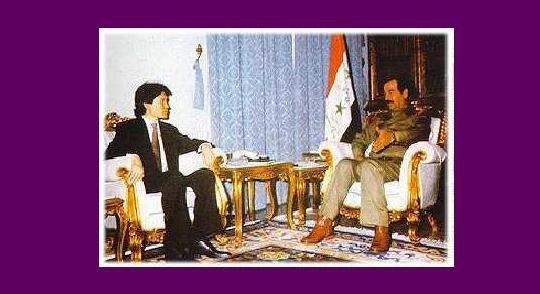
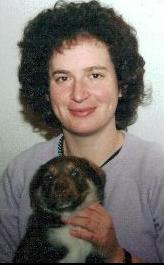
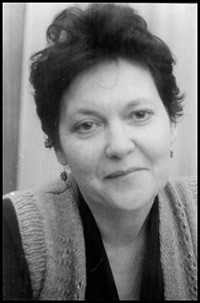
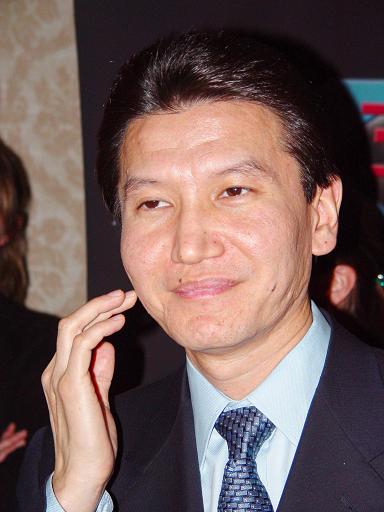

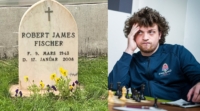
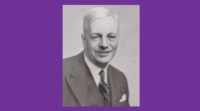
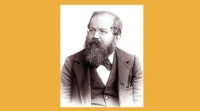
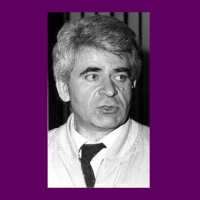
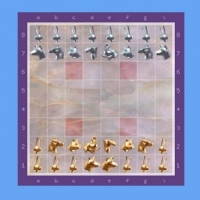
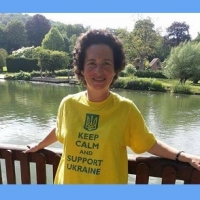

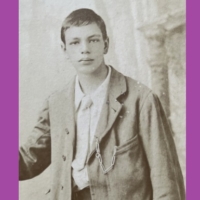
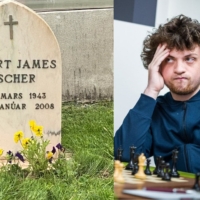
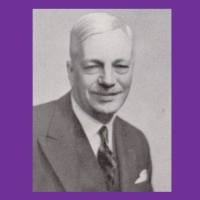
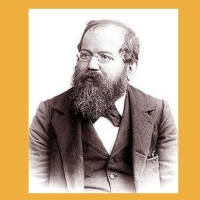
DENMARK’s Morten Sand? Sigh. Fact check please.